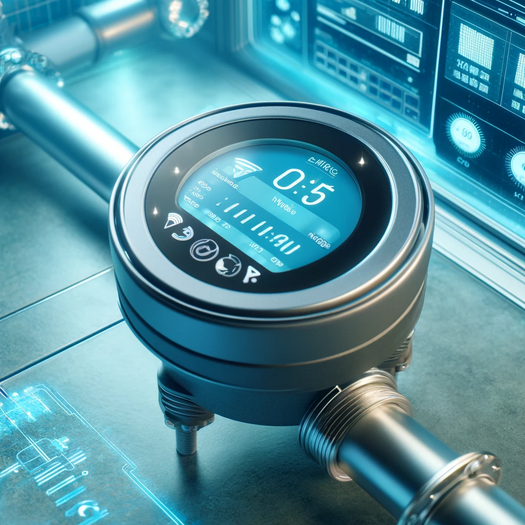The rising urban population is creating opportunities for the development of smart cities, which ultimately is driving the demand for smart water metering infrastructure development on a larger scale. The increasing urban population is opening up avenues for smart cities. In addition, several factors include NRW losses, including incorrect mechanical meters, manual meter reading, and un-metered consumption. Water loss mainly occurs due to leaks, theft, storage tank overflows, unauthorized usage, and the provision of free water to certain consumers. Governments and utilities across the globe are increasingly mandating advanced metering infrastructure as a strategic approach to sustainable water management, which is driving rapid adoption of smart water meters.
The global smart water meters market size is projected to reach USD 9.04 billion by 2030 from USD 4.61 billion in 2024, at a CAGR of 11.9% between 2024 and 2030.
The water utilities segment, by application
Water utilities dominate the largest share of global smart water meters market. The water grid used for the distribution of water is a key part of water utilities infrastructure. Of all the utilities, today water leakage remains to be the major problem. This problem requires more effective leak detection and prevention processes. Smart metering of water is playing an integral part in this regard, enabling utilities to monitor consumption, detect early leakage systems, and become efficient overall. Given its continuous innovations with regard to smart metering technology, such a market is growing phenomenally, as more utilities are investing in modern versions to reduce water waste and improve their operations.
Download PDF Brochure – https://www.marketsandmarkets.com/pdfdownloadNew.asp?id=250996975
Stakeholders
- Government and research organizations
- Institutional investors and investment banks
- Investors/shareholders
- Environmental research institutes
- Consulting companies in energy & power sector
- Raw materials and component manufacturers
- Manufacturers’ associations
- Manufacturing industry
- Energy efficiency consultancies
- Original equipment manufacturers (OEMs) and system integrators
- Engineering, procurement, and construction (EPC) contractors
- Standardization and testing firms
- Meter data management software providers
- Meter manufacturing companies
- Water-intensive industries
- Water utilities
The meter and accessories segment, by component
The meters & accessories segment comprise flow meters, endpoints, encoders, registers, transmitters, radio modules, and antennas, important for accurate water consumption measurement. The size and type of meters vary according to the specific application and amount of water consumed among various residential, commercial, and industrial needs. Advanced metering infrastructure (AMI) permits real-time monitoring, automated data collection, and analytics that reduce labor and metering costs. In automation, R&D investments by manufacturers will tend to flourish as manual readings will be almost negligible. All these will transform and trigger innovations to move the segment.
Top Companies in Smart Water Meter Industry
- Badger Meter, Inc. (US),
- Sensus (Xylem) (US),
- Diehl Stiftung & Co. KG. (Germany),
- Landis+Gyr (Switzerland),
- Itron, Inc. (US),
- ZENNER International GmbH & Co.KG (Germany),
- Sagemcom (France),
- Arad Group (Israel),
- Honeywell International Inc. (US),
- Aclara (Hubbell) (US),
- Kamstrup (Denmark),
- Wasion Holdings International (China) among others.
Make an Inquiry – https://www.marketsandmarkets.com/Enquiry_Before_BuyingNew.asp?id=250996975
Regional Analysis
Europe, in 2023 is the third largest market. In the region, the demand for intelligent water metering infrastructure is accelerating due to increasing water tariffs, which suffer heavily due to poor water management and soaring water losses. Under the water policies of the EU, all the member states have an obligation to implement efficient incentives for water conservation. Water utilities have thus targeted the development of smart water management infrastructure and replacing the old systems with smart water meters to minimize losses. In some countries like the Netherlands, Spain, and France, high consumption is registered with a huge proportion coming from the residential sector. Consequently, the management of residential water use is an area where the utilities focus more. To minimize manual intervention and ease data collection, utilities are increasingly using advanced metering infrastructure technology. These factors are driving the European smart water meters market.

